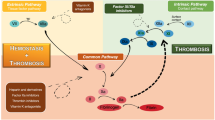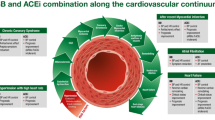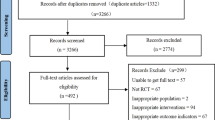Abstract
Background
Tecarfarin (ATI-5923), a structural analog of warfarin, was designed to provide more uniform and stable anticoagulation.
Objective
We aimed to evaluate the safety, tolerability, pharmacokinetic and pharmacodynamic profile of tecarfarin when administered in multiple ascending doses (MADs) to healthy Chinese volunteers.
Methods
Forty healthy Chinese volunteers were enrolled into four sequential cohorts (10, 20, 30, and 40 mg), with 10 subjects in each cohort. Participants in the MAD study for each sequential cohort were dose-titrated to achieve the target international normalized ratio (INR 1.7–2.0) for 14 days. Safety and tolerability were assessed throughout the study.
Results
The pharmacokinetic and pharmacodynamic profile of tecarfarin was investigated in a healthy Chinese population. Dose titration of tecarfarin was necessary to keep the INR in the target range in all subjects in the 20, 30 and 40 mg cohorts and a few subjects (n = 3) in the 10 mg cohort. Tecarfarin was well tolerated without serious adverse events. Only one treatment-related adverse event (hematochezia) resulted in early withdrawal from the MAD 40 mg cohort.
Conclusion
Tecarfarin was well-tolerated by Chinese volunteers. Dose titration was needed for tecarfarin doses larger than 20 mg to keep the INR in the target range.
Registration
ClinicalTrials.gov identifier: NCT04627116.




Similar content being viewed by others
References
Wendelboe AM, Raskob GE. Global burden of thrombosis: epidemiologic aspects. Circ Res. 2016;118:1340–7. https://doi.org/10.1161/CIRCRESAHA.115.306841.
Kearon C, Akl EA, Ornelas J, et al. Antithrombotic therapy for VTE disease: CHEST guideline and expert panel report. Chest. 2016;149:315–52. https://doi.org/10.1016/j.chest.2015.11.026.
Zirlik A, Bode C. Vitamin K antagonists: relative strengths and weaknesses vs. direct oral anticoagulants for stroke prevention in patients with atrial fibrillation. J Thromb Thrombolysis. 2017;43:365–79. https://doi.org/10.1007/s11239-016-1446-0.
McBane RD II, Felty CL, Hartgers ML, et al. Importance of device evaluation for point-of-care prothrombin time international normalized ratio testing programs. Mayo Clin Proc. 2005;80(2):181–6.
Pirmohamed M, Burnside G, Eriksson N, et al. A randomized trial of genotype-guided dosing of warfarin. N Engl J Med. 2013;369:2294–303. https://doi.org/10.1056/NEJMoa1311386.
Connolly SJ, Ezekowitz MD, Yusuf S, et al. Dabigatran versus warfarin in patients with atrial fibrillation. N Engl J Med. 2009;361:1139–51.
Patel MR, Mahaffey KW, Garg J, et al. Rivaroxaban versus warfarin in nonvalvular atrial fibrillation. N Engl J Med. 2011;365:883–91.
Granger CB, Alexander JH, McMurray JJ, et al. Apixaban versus warfarin in patients with atrial fibrillation. N Engl J Med. 2011;365:981–92.
Giugliano RP, Ruff CT, Braunwald E, et al. Edoxaban versus warfarin in patients with atrial fibrillation. N Engl J Med. 2013;369:2093–104.
Bereznicki LR, Peterson GM. New antithrombotics for atrial fibrillation. Cardiovasc Ther. 2010;28:278–86. https://doi.org/10.1111/j.1755-5922.2010.00209.x.
Ellis DJ, Usman MHU, Milner PG, et al. The first evaluation of a novel vitamin K antagonist, tecarfarin (ATI-5923), in patients with atrial fibrillation. Circulation. 2009;120(12):1029–35. https://doi.org/10.1161/circulationaha.109.856120.
Mearns BM. Is tecarfarin a better anticoagulant than warfarin? Nat Rev Cardiol. 2010;7(1):4.
Choppin A, Irwin I, Lach L, et al. Effect of tecarfarin, a novel vitamin K epoxide reductase inhibitor, on coagulation in beagle dogs. Br J Pharmacol. 2009;158:1536–47. https://doi.org/10.1111/j.1476-5381.2009.00420.x.
Albrecht D, Turakhia MP, Ries D, et al. Pharmacokinetics of tecarfarin and warfarin in patients with severe chronic kidney disease. Thromb Haemost. 2017;117:2026–33. https://doi.org/10.1160/th16-10-0815.
Bavisotto LM, Ellis DJ, Milner PG, et al. Tecarfarin, a novel vitamin K reductase antagonist, is not affected by CYP2C9 and CYP3A4 inhibition following concomitant administration of fluconazole in healthy participants. J Clin Pharmacol. 2011;51:561–74. https://doi.org/10.1177/0091270010370588.
Tse H-F, Wang Y-J, Ai-Abdullah MA, et al. Stroke prevention in atrial fibrillation—an Asian stroke perspective. Heart Rhythm. 2013;10:1082–8.
Siu C-W, Lip GY, Lam K-F, et al. Risk of stroke and intracranial hemorrhage in 9727 Chinese with atrial fibrillation in Hong Kong. Heart Rhythm. 2014;11:1401–8.
Hori M, Connolly SJ, Zhu J, et al. Dabigatran versus warfarin: effects on ischemic and hemorrhagic strokes and bleeding in Asians and non-Asians with atrial fibrillation. Stroke. 2013;44:1891–6.
Singer DE, Hellkamp AS, Piccini JP, et al. Impact of global geographic region on time in therapeutic range on warfarin anticoagulant therapy: data from the ROCKET AF clinical trial. J Am Heart Assoc. 2013;2: e000067. https://doi.org/10.1161/JAHA.112.000067.
Ho CW, Ho MH, Chan PH, et al. Ischemic stroke and intracranial hemorrhage with aspirin, dabigatran, and warfarin: impact of quality of anticoagulation control. Stroke. 2015;46:23–30. https://doi.org/10.1161/STROKEAHA.114.006476.
Wallentin L, Lopes RD, Hanna M, et al. Efficacy and safety of apixaban compared with warfarin at different levels of predicted international normalized ratio control for stroke prevention in atrial fibrillation. Circulation. 2013;127:2166–76. https://doi.org/10.1161/CIRCULATIONAHA.112.142158.
Zhang J, Chen Z, Chen C. Impact of CYP2C9, VKORC1 and CYP4F2 genetic polymorphisms on maintenance warfarin dosage in Han-Chinese patients: a systematic review and meta-analysis. Meta Gene. 2016;9:197–209. https://doi.org/10.1016/j.mgene.2016.07.002.
Hobl EL, Jilma B. Tecarfarin: a novel vitamin K antagonist. Thromb Haemost. 2017;117:2009–11. https://doi.org/10.1160/th17-08-0594.
Salmaan K, Meghan H, Adam L, et al. Reporting guidelines for clinical pharmacokinetic studies: the ClinPK statement. Clin Pharmacokinect. 2015;54(7):783–95. https://doi.org/10.1007/s40262-015-0236-8.
Meijer P, Kynde K, van den Besselaar AM, Van Blerk M, Woods TA. International normalized ratio (INR) testing in Europe: between-laboratory comparability of test results obtained by Quick and Owren reagents. Clin Chem Lab Med. 2018;56(10):1698–703.
Maganti L, Panebianco DL, Maes AL. Evaluation of methods for estimating time to steady state with examples from phase 1 studies. AAPS J. 2008;10:141–7. https://doi.org/10.1208/s12248-008-9014-y.
Albrecht D, Ellis D, Canafax DM, et al. Pharmacokinetics and pharmacodynamics of tecarfarin, a novel vitamin K antagonist oral anticoagulant. Thromb Haemost. 2017;117:706–17. https://doi.org/10.1160/th16-08-0623.
Author information
Authors and Affiliations
Corresponding authors
Ethics declarations
Conflicts of interest/competing interest
**aoyi Li, **angrong Dai, Yong Zhang and **aohui Yu are employed by Zhaoke Pharmaceutical Co., Ltd, Guangzhou, China. Qiang Zhou, Zhiqiang Wang, Heming Wang, Zhidong Chen, Renpeng Zhou and Wei Hu have no relevant financial or non-financial competing interests to report.
Funding
This study was supported by the National Major Scientific and Technological Special Project (2020ZX09201014). NCT04627116 was sponsored by Lee’s Pharmaceutical Limited.
Author contributions
Qiang Zhou, Zhiqiang Wang, Renpeng Zhou and Wei Hu contributed to the study conception and design. Renpeng Zhou and Wei Hu performed the clinical trials. Heming Wang, Zhidong Chen, **aoyi Li and Xaingrong Dai conducted the biosample analysis. Zhiqiang Wang, Yong Zhang and Xaiohui Yu performed the statistical analysis and interpretation of the data. Qiang Zhou and Zhiqiang Wang drafted the manuscript. All authors were involved in revising the paper critically for intellectual content, and approved the final version to be published.
Ethical approval
This study was approved by the Ethics Committee of the Second Affiliated Hospital of Anhui Medical University (Hefei, China).
Consent to participate
Not applicable.
Consent for publication
Not applicable.
Data availability
The data that support the findings of this study are available from the corresponding author (Wei Hu) upon reasonable request.
Code availability
Not applicable.
Supplementary Information
Below is the link to the electronic supplementary material.
Rights and permissions
Springer Nature or its licensor (e.g. a society or other partner) holds exclusive rights to this article under a publishing agreement with the author(s) or other rightsholder(s); author self-archiving of the accepted manuscript version of this article is solely governed by the terms of such publishing agreement and applicable law.
About this article
Cite this article
Zhou, Q., Wang, Z., Wang, H. et al. Safety and Tolerability of Tecarfarin (ATI-5923) in Healthy Chinese Volunteers: Multiple Oral Dose-Escalation Phase I Trial. Am J Cardiovasc Drugs 23, 101–112 (2023). https://doi.org/10.1007/s40256-022-00562-5
Accepted:
Published:
Issue Date:
DOI: https://doi.org/10.1007/s40256-022-00562-5




